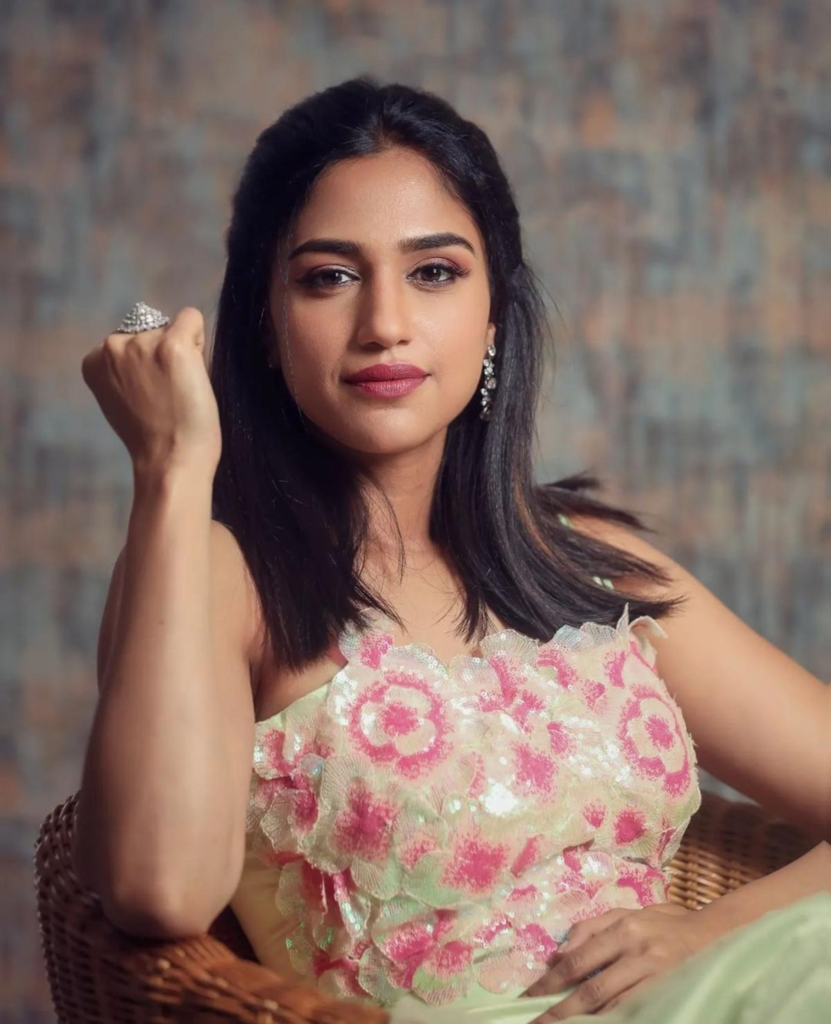We need people telling women stories, not ‘women-oriented’ films: Siri Ravikumar
Bengaluru, Aug 8 (PTI) Her life revolved around a set of mundane rules – home, work, home, and dosas for breakfast every single day. Naturally, it is with a resigned sullenness that Prerna goes about her life in ‘Swathi Muthina Male Haniye,’ in the process pulling out all the “full stops” reserved for female leads in films.

For Siri Ravikumar, who just won the Best Actor (Female) award in Kannada language films category at the 69th Filmfare Awards-South, for her portrayal of Prerna, it is the various shades of grey that made Prerna – that which makes someone a human – that are often denied to characters, especially women characters, in Indian cinema.
“Yes, it has taken a while for Indian cinema to evolve in terms of showing women in a particular light. But even these so-called women-oriented films, where, you know, she is portrayed as the boss – she is everything – are also quite skewed. You can’t really have a woman in such a good light all the time. You should also show what she is bad at, what works for her, what does not work for her and what she does that work or does not work for others,” Ravikumar told PTI.
This is where Ravikumar said she lucked out. The characters she has played so far are as flawed as any woman is in real life. Even in her very first film as female lead, ‘Sakutumba Sametha’ (2022), her character Shraddha is “way too confused” for a regular heroine.
“I am fortunate enough to have gotten roles that have kind of broken a lot of barriers. If we take ‘Sakutumba Sametha,’ what appealed most to me was the character of the girl and her confusion, the central point of the film. You always see your protagonist as the perfect one, with no flaws, having figured out life. But then there was Shraddha, all confused about what she wanted in life,” said Ravikumar.
A Bengaluru-based radio jockey who was really into theatre, Ravikumar began her film journey in ‘Harikatha Prasanga,’ the debut directorial venture of Ananya Kasaravalli, the legendary Girish Kasaravalli’s daughter.
“It was a small role. I was referred to the film by Prakash Belawadi, who is also my guru, I could say, in theatre. When I went for shoot, I had no idea what shooting for films was like. When I came back from shooting after 10 days, I still couldn’t understand what filmmaking was all about,” said Ravikumar.
But small roles in films came her way soon after, like National Award winning Kannada director P Sheshadri’s ‘Beti’ (2017) and Hemant Rao’s ‘Kavaludaari’ (2019). Lead roles in a couple of web series, one of which never really saw light of the day, and an advertisement for Cadbury followed.
Then Rahul P K and writer Pooja Sudhir, who had worked with her in one of the web series – the one “that never took off” – approached her with ‘Sakutumba Sametha.’
“By then, slowly my interest grew and I became fascinated with films as well. It felt amazing to give life to those characters. Being part of all these projects gave me confidence that I could do any role. It’s just adjusting to the difference between the stage and the camera. I realised that’s all it takes. That shift is what I had to be mindful of,” said Ravikumar.
And when ‘Sakutumba Sametha’ happened there was no looking back, she added.
Ravikumar also thinks a ‘woman film’ does not necessarily need a woman director.
“There are filmmakers like Hemant Rao and Shishir Rajmohan who are very sensitive to the nature of what a woman would want or what she would want to tell in the role or in a particular scene. I remember Shishir (Ravikumar plays the female lead in his ‘Abracadabra’) asking me for a woman’s perspective. So, when there is creative collaboration like that, it becomes quite inclusive,” said Ravikumar.
But she agrees that when a woman tells a story, sometimes quirky aspects of being a woman come out much more fluidly.
“Especially Roopa Rao (director of ‘Gantumoote’), I think, has that quality. I really want to work with her. There is that sense of something that I cannot put into words. It’s a sensitivity. Maybe, someday I will work with a woman filmmaker,” said Ravikumar.
Given that her fascination for films has grown immensely in these years, Ravikumar hopes to one day direct films too.
“I don’t know if I am ready to tell a story yet. But there are a lot of ideas and I am also glad there are a lot of women filmmakers around who are quite inspiring. I hope it will happen someday,” said Ravikumar.
For now though – now that she possesses the coveted Black Lady (as the Filmfare award is known among the film fraternity) – Ravikumar is happy that she was steadfast in choosing films in which character arcs emerge from the ordinary, and sometimes seemingly mundane, aspects of life.
“If you ask me, I think what we really need is more people telling women stories rather than making women-oriented films,” said Ravikumar.






